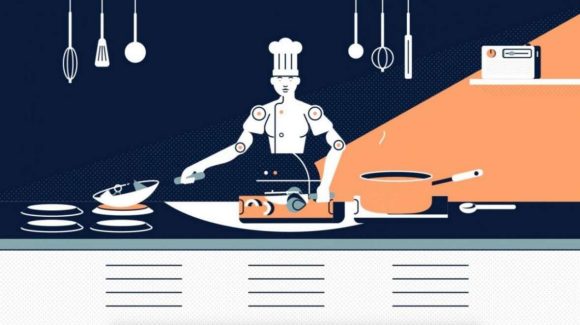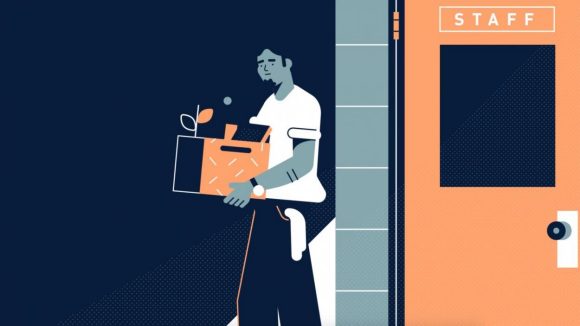I lost my job to a robot
August 2017 | 7 min read
In partnership with Vice
In partnership with Vice
We’d like to meet you
Look around you. We are surrounded by a plethora of so called smart devices such as smart phones, smart watches, smart TVs, smart meters, smart cookers, and the list goes on. Tools that we never associated with intelligence, are becoming more autonomous, making decisions of their own, without humans having to instruct.
We humans have enjoyed this up rise of technology and have encouraged it so far. However, we are now facing a critical point where we fear that devices empowered by Artificial Intelligence (AI) are becoming smarter than humans who invented the AI, and threatening to grab our jobs.
Humans have already lost to AI in various fields. Last month, Alpha Go, a software developed at Google Deep Mind in London, convincingly beat the human world champion in the board game of Go. Deep learning algorithms outperformed humans in image recognition tasks couple of years ago. Translating between two human languages, a task that was once reserved for bilingual experts, can now be performed at a remarkable accuracy by machine translation systems thanks to neural language models. Art, once thought to be a human-only performance, is being slowly invaded by AI as algorithms draw Goghs that would make even the originator Vincent van Gogh proud!
There is no doubt that machines are becoming intelligent and eventually surpass humans in all tasks that were once thought to be exclusive to humans. A report from the Oxford Martin School’s Programme on the Impacts of Future Technology predicts that 47% of all jobs in the US are likely to be replaced by AI systems in the near future. Nobel prize winning physicist Stephen Hawking fears that AI could end mankind as we know it. Ray Kurzweil predicted this singularity in machine intelligence to happen in 2045, but recently Elon Musk, the Tesla and SpaceX CEO, revised this date to 2030.
If the pundits are correct and if it is inevitable that AI taking our jobs, as smart humans, what can we do about it? How are we going to survive in the future? Without jobs, who is going to pay us to live?
Will AI unlock our human potential?
If we are losing our jobs to AI because we humans are not intelligent enough, then we can surely make ourselves more intelligent with the help of AI. We already use a range of smart devices in our day-to-day lives to conduct various tasks. In a way, we have already immersed ourselves in a sea of more intelligent tools to get our job done. We humans have been comfortable working with tools since we lived in caves thousands of years ago. We are not intimidated by the kettle, toaster or phone. So why fear AI? Should we not embrace AI and make ourselves more intelligent so that we can do more work efficiently?
Neurallink, a company founded by Elon Musk, endeavours to take this human-machine integration to the next level by planting a direct neural lace in the human brain that would enable us to convey our thoughts to a computer.
Perhaps we should let AI do our day-jobs and indulge ourselves with things we always wanted to do, let it be composing music, drawing paintings, or gardening. After all filling spreadsheets with numbers was never the strong point of humans, and let’s enjoy a nice afternoon outside while AI does all the accounting work for us. Of course, we can later inspect the reports AI produced and worry about the financial predictions it makes. Alternatively, we can trust the AI to run our businesses on behalf of us altogether. We can let AI take important business decision and execute it on behalf of us. At this very moment, Algorithmic trading systems perform billions of transactions in stock markets around the globe without any human intervention.
A robot might cook delicious meals consistently and relentlessly in a restaurant chain, but if it does not suit a palette of a particular client, a human can intervene and apologize on behalf of the robot.
A medical diagnostic AI system might be more accurate than a human oncologist in detecting cancer, but we might want a human to deliver the bad news. After all that is what makes us human.
Other articles you might like
Other articles you might like
Whatever your goals, UBS can help you get the best for your life, family and business.
Whatever your goals, UBS can help you get the best for your life, family and business.
Come and see us so we can find out more about what matters to you.
If you want to know more
If you want to know more
Come and see us so we can find out more about what matters to you


